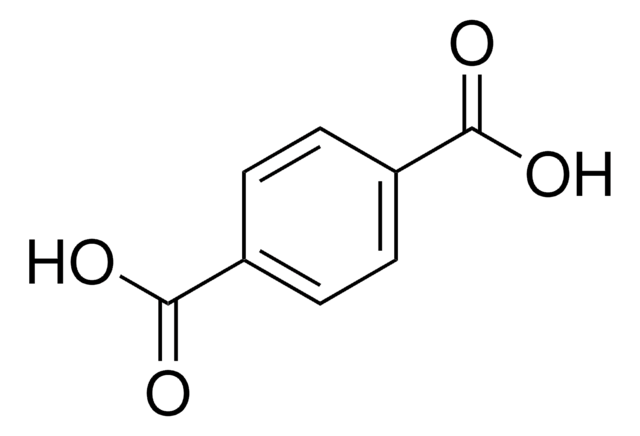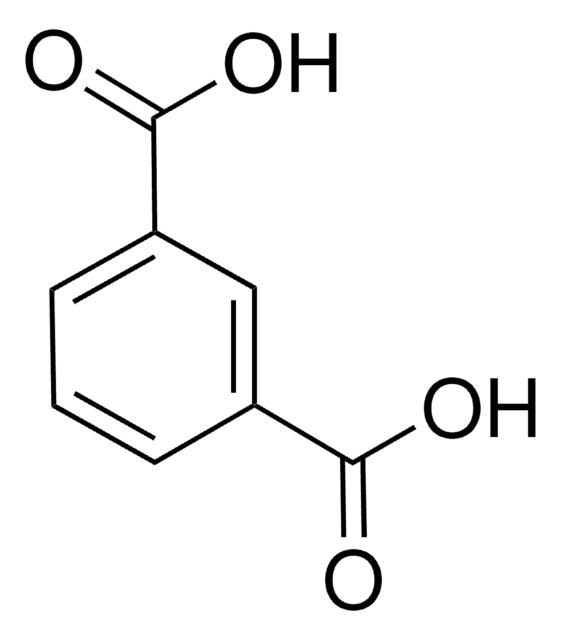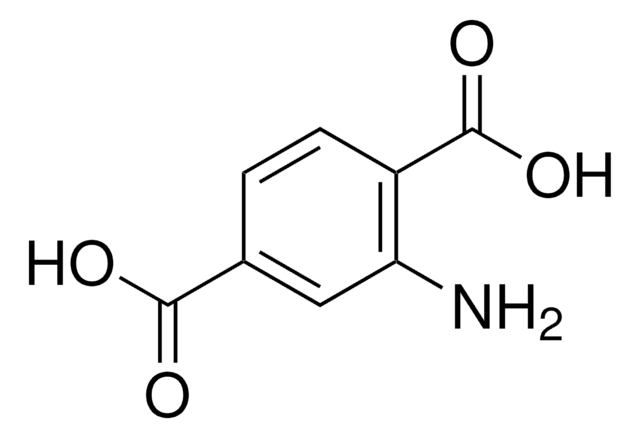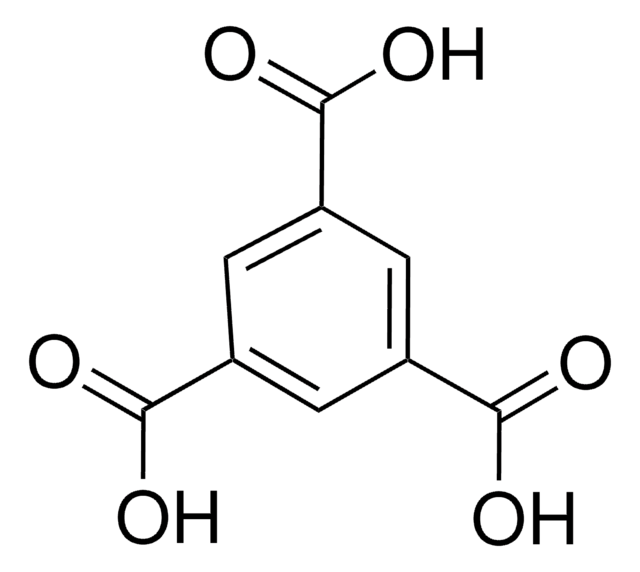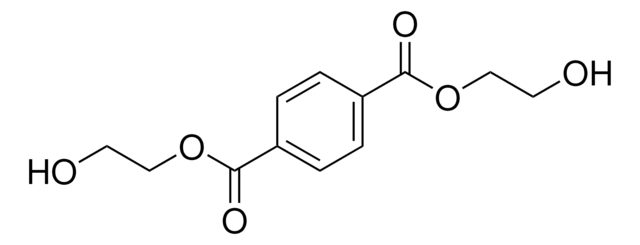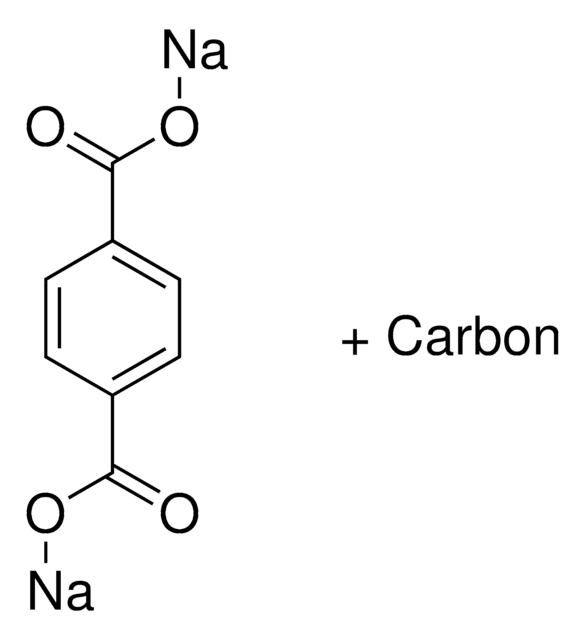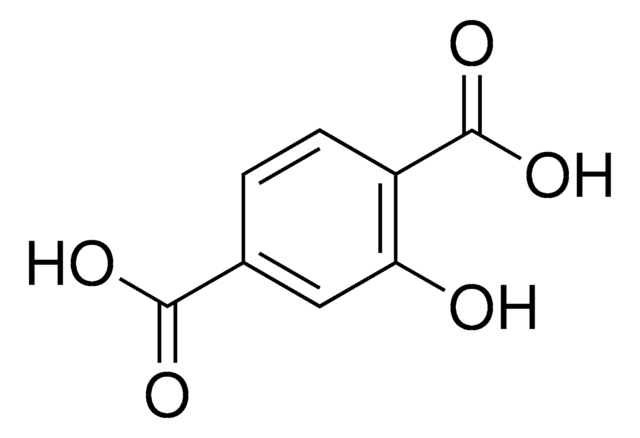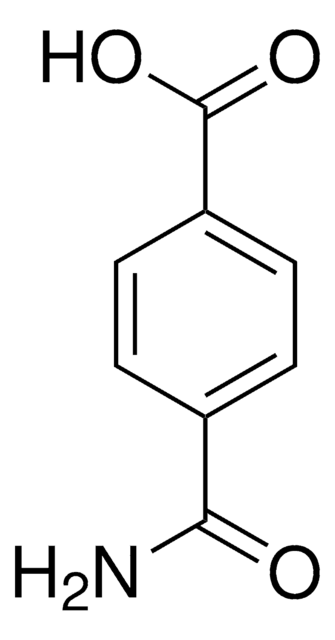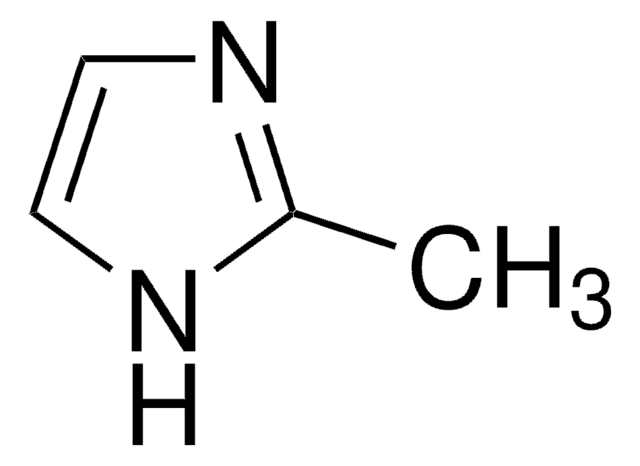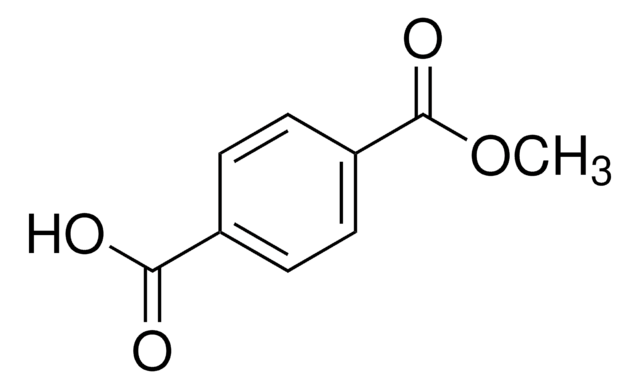8.00762
Terephthalic acid
for synthesis
Synonym(e):
Benzol-1,4-dicarbonsäure, p-Phthalsäure
About This Item
Empfohlene Produkte
Qualität
for synthesis
synthesis grade
Qualitätsniveau
Assay
≥98% (acidimetric)
Form
crystalline
Selbstzündungstemp.
496 °C
Wirksamkeit
>6400 mg/kg LD50, oral (Rat)
mp (Schmelzpunkt)
402 °C (sublimed)
Löslichkeit
15 mg/L (experimental)
Dichte
1.51 g/cm3 at 20 °C
Lagertemp.
2-30°C
SMILES String
[O-]C(=O)c1ccc(cc1)C(=O)[O-].[H+].[H+]
InChI
1S/C8H6O4/c9-7(10)5-1-2-6(4-3-5)8(11)12/h1-4H,(H,9,10)(H,11,12)
InChIKey
KKEYFWRCBNTPAC-UHFFFAOYSA-N
Anwendung
- Biotransformation of p-xylene into terephthalic acid by engineered Escherichia coli: This study explores an alternative production method for terephthalic acid (TPA) that could be less energy-intensive and safer than traditional methods. It reports the successful bioconversion of p-xylene into TPA using genetically engineered E. coli, highlighting a potential sustainable approach to TPA production (Luo & Lee, 2017).
- Synthesis and verification of biobased terephthalic acid from furfural: This research presents a novel synthetic pathway for producing TPA from biomass-derived furfural. It represents a significant step towards sustainable chemical production, providing a greener alternative to petrochemical routes (Tachibana, Kimura & Kasuya, 2015).
- Studies on the solubility of terephthalic acid in ionic liquids: Focused on identifying better solvents for TPA, this study investigates the solubility of TPA in various ionic liquids. The findings could lead to improved processing techniques for TPA in industrial applications (Matuszek et al., 2019).
- Engineering terephthalic acid product from recycling of PET bottles: This study explores the depolymerization of PET into TPA and ethylene glycol, highlighting a sustainable approach to recycle PET waste and reduce reliance on petrochemicals (Lee, Chiu & Lee, 2021).
- Biobased terephthalic acid technologies - a literature review: Reviews various biobased approaches to produce TPA, focusing on the potential of renewable feedstocks to replace traditional petrochemical routes. This comprehensive review discusses different biotechnological and chemical methods to synthesize TPA from bio-based sources (Collias et al., 2014).
Hinweis zur Analyse
Identität (IR): entspricht
Lagerklassenschlüssel
11 - Combustible Solids
WGK
WGK 1
Flammpunkt (°F)
Not applicable
Flammpunkt (°C)
Not applicable
Analysenzertifikate (COA)
Suchen Sie nach Analysenzertifikate (COA), indem Sie die Lot-/Chargennummer des Produkts eingeben. Lot- und Chargennummern sind auf dem Produktetikett hinter den Wörtern ‘Lot’ oder ‘Batch’ (Lot oder Charge) zu finden.
Besitzen Sie dieses Produkt bereits?
In der Dokumentenbibliothek finden Sie die Dokumentation zu den Produkten, die Sie kürzlich erworben haben.
Kunden haben sich ebenfalls angesehen
Unser Team von Wissenschaftlern verfügt über Erfahrung in allen Forschungsbereichen einschließlich Life Science, Materialwissenschaften, chemischer Synthese, Chromatographie, Analytik und vielen mehr..
Setzen Sie sich mit dem technischen Dienst in Verbindung.